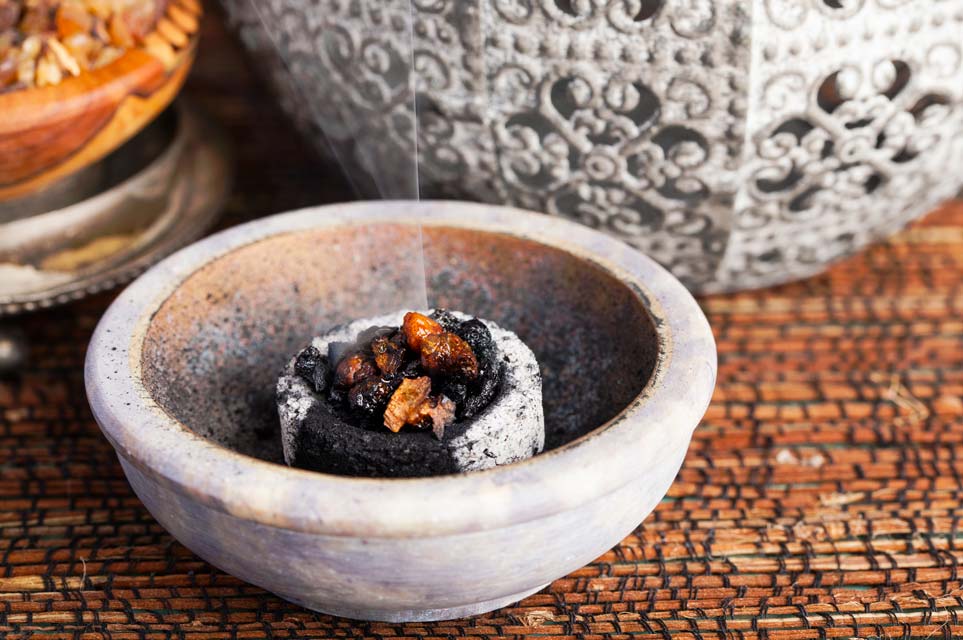Traditional Uses of Guggul

Categorized as a nervine and antispasmodic herb according to Ayureda, guggul reportedly improves functioning of the nervous system. It is considered a warming herb that pacifies vata and kapha doshas, and contains four of the six tastes (astringent, bitter, pungent and sweet). Guggul has been and continues to be used both systemically and topically in Ayurveda natural medicine for a number of different health conditions. In general, it is believed to get rid of toxic accumulations.11-13
Some examples of what conditions Ayurveda considers as caused by toxic accumulation and treatable with guggul’s purifying properties include:11-13
| Body System | Condition |
| Bones | Arthritis |
| Cardiovascular | Clogged arteries, blood clots, high cholesterol, congestive heart failure |
| Immune System | Lung infections, tonsillitis |
| Metabolic/Endocrine System | Diabetes, obesity |
| Mouth | Canker sores, gingivitis, periodontal disease |
| Skin | Acne lesions, chronic skin disorders, lipomas |
| Uterine | Endometriosis, menstrual clotting |
| Whole Body | Alcoholism and drug abuse recovery, cancer, nervous disorders |
The guggul resin is often combined with other herbs for treatment purposes:11-13
| Condition | Herbs |
| Acne | Guduchi, neem, triphala, turmeric |
| Arthritis | Fenugreek, frankincense, turmeric |
| Back pain | Ginger, guduchi, gokshura |
| Bone fractures | Haritaki, trikatu, triphala, turmeric |
| Gout | Ginger, guduchi, gokshura |
| Heart conditions | Arjuna, punarnava, pushkaramool |
| Menstrual problems | Safflower, shatavari, mustaka |
Atherosclerosis.
Tinospora cordifolia, called amrit in Sanskrit.
Azadirachta indica, a purifying herb.
Tribulus terrestris.
Terminalia chebula.
A combination of ginger, black pepper, and Indian long pepper.
Inula racemosa.
Asparagus racemosus.
Cyperus rotundus.
Disclaimer: This website is not intended to replace professional consultation, diagnosis, or treatment by a licensed physician. If you require any medical related advice, contact your physician promptly. Information presented on this website is exclusively of a general reference nature. Do not disregard medical advice or delay treatment as a result of accessing information at this site.



